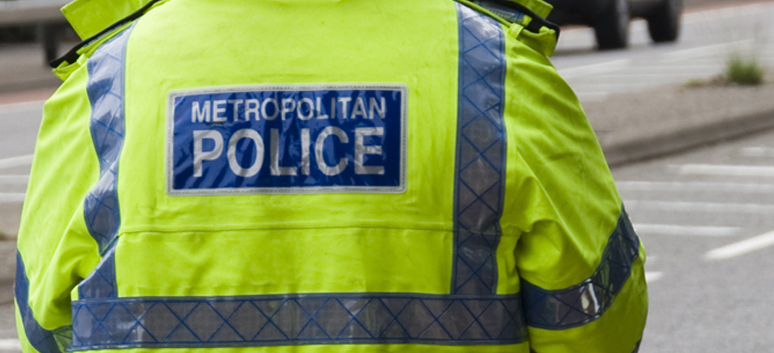
Police Station Legal Representation
September 20, 2021 9:08 amThe police are increasingly asking individuals suspected of committing a criminal offence to attend a police station voluntarily for an interview under caution rather than just arresting the individual. These interviews have various names including an interview under caution, a voluntary interview or a caution plus three interview. Whatever the name, being asked to attend the police station for an interview under caution is a daunting experience no matter what offence the police are investigating against you. In some cases, you might know what the interview might be about. On the other hand, you might not have a clue what the police want to question you about. You are entitled to independent legal advice and it is important that you ensure you exercise that right.
What is also very important to remember is that these interviews are your first opportunity to prevent the case going any further. If that is not possible then a successful police interview will lay the foundations for a successful defence at your trial. That is precisely what our team of experienced police station advisers plan to do when they attend a police interview with you.
What is an Interview under Caution?
An interview under caution is an interview conducted in line with the Police and Criminal Evidence Act 1984. All formal police interviews with suspects (whether the individual is there voluntarily or under arrest) start with an officer giving the individual “the caution”.
The caution is one that may be familiar to you from watching detective and crime programs on the Television. The caution is “You do not have to say anything but it may harm your defence if you do not mention something when questioned that you later rely on in court. Anything you do say may be given in evidence.”
In plain English, the caution is a warning to the person being interviewed and allows the person that they have a right to silence. It is up to the person if he or she wishes to answer the police’s questions or not. Anything that the person does say to the police during the interview will be recorded and will be used as evidence.
Therefore, it is extremely important to obtain legal advice regarding what you do or do not say during your police station interview, as what is said or not said matters.
How will the Police contact me?
The police usually contact an individual via a telephone call, letter, or sometimes simple a card through the door. All of these forms of contact will invite an individual to make contact and arrange a convenient time to attend the police station.
It is important that at the point of receiving the invitation to attend the police station you must contact your solicitor as soon as possible. It is also important that you take a note of the police officer’s name, station, collar or warrant number, or telephone number as this will save time for a solicitor to contact them.
It is important to remember that you should not speak to the police about the allegation without your lawyer’s advice. Once you have contacted your solicitor at Criminal Defence Solicitors, we will take the police office’s details from you and discuss with the police on your behalf. We will then arrange a time and date for the interview at your convenience.
It is also important to remember that a voluntary interview is not a friendly chat with the police. You will be interviewed as a suspect to a crime. Having a solicitor with you in your interview can make all the difference to your case. If you are contacted by the police, your first action should be to call one of our good, professional solicitors.
What will my a lawyer be able to do?
We will discuss your case with you before you go to the police station. Often, we are able to speak to the police officer on the telephone or by email to get some idea of what he or she wants to discuss with you. We can then begin preparing for the interview. This may mean helping you to get relevant paperwork together to support your version of events or simply putting your mind at rest about what is going to happen.
Once we are at the police station, our representative will speak to the police officer to get as much detail of the allegation as possible. We will then sit down in private with you to explain what the police officer has told us, what the law is and the various ramifications of your own account. We can then agree a plan of action with you for the interview.
This simple tactic of planning combined with legal knowledge and hard work will provide the best platform from which we can defend you should your case come to court.
What are the possible outcomes of an interview under caution?
The three most likely outcomes of an interview under caution include:
- The individual will face no further action and that is the end of the matter.
- Depending on the nature of the offence and the individual’s previous history, the individual may be offered an out of court disposal, for instance a caution or community resolution. However, this can only be given if the individual has admitted to the offence for this outcome to be possible.
- The individual is charged by postal requisition and will receive a court date in the post.
It varies from case to case as to how long one of the above outcomes will take. In some cases, the police will decide very quickly whether or not an action will be taken against an individual. In other cases, it can take several months until one of the above outcomes is reached.
How can we help?
If you have been asked to attend a police station for an interview under caution, here at Criminal Defence Solicitors we are here to help. We can provide our expert defence team to discuss your case with you before you go to the police station and offer our expert advice. We will also prepare for the interview to ensure that the interview goes as well as possible. This will also help you avoid a potentially damaging criminal record. We will look at all the facts of the accusation and decide what defence is most suitable for your case. This will also include everything from the facts of the case all the way to whether your actions actually amounted to the criminal act or not.
Our team of litigators and advocates have many years of experience analysing complex factual scenarios and applying them to often novel areas of law, ensuring we get the best possible results for our clients. Do not hesitate to call us on 020 8158 9007or email us on info@criminaldefencesoliticors.co.uk to get expert legal advice for you and your case.

